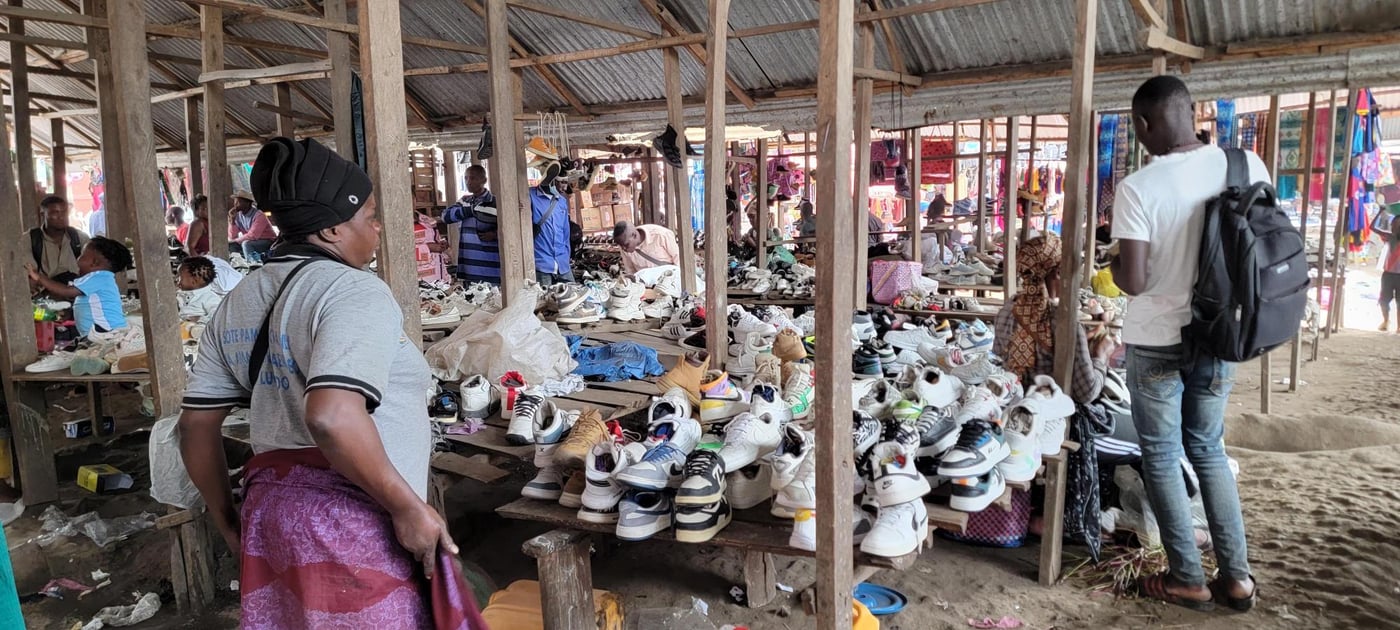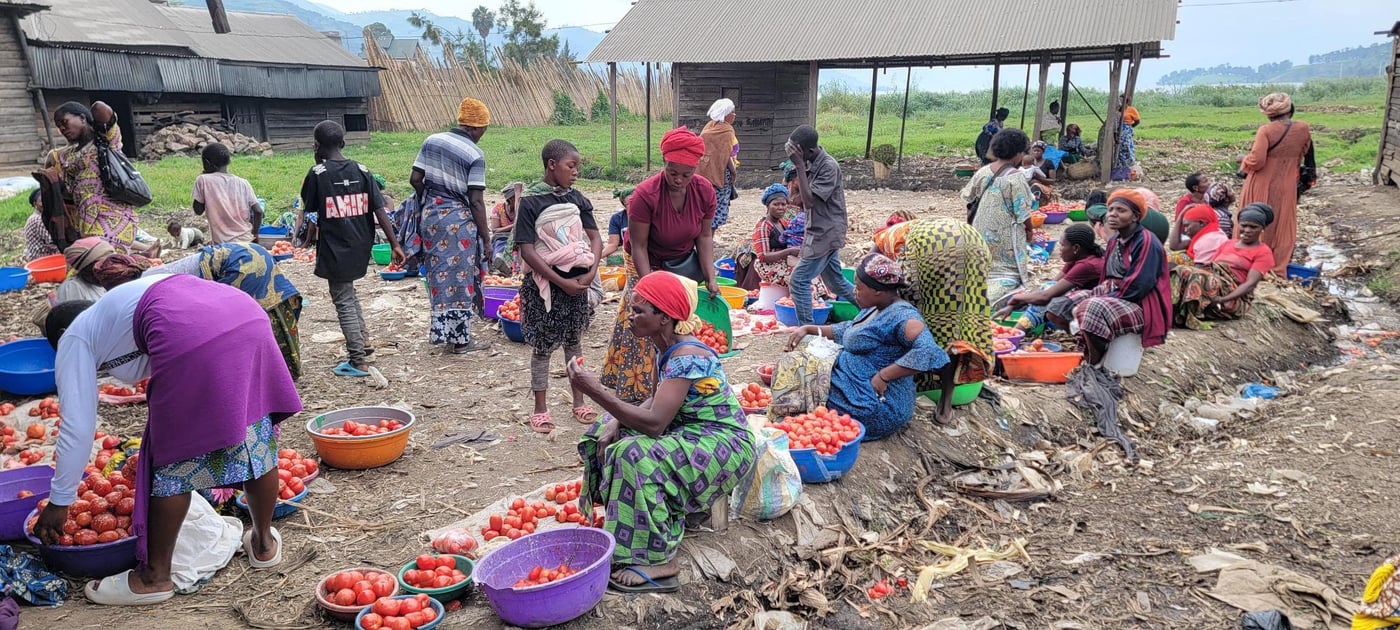In February 2025, people suddenly returned to areas they had been forced to abandon. However, they often arrive to find their homes destroyed, farms ruined and businesses closed.
A boost to the local economy
In response, NRC has distributed cash to help families resettle and start earning a living again. Nearly USD 4.6 million has been raised in total, thanks to generous donors, including the UK’s Foreign, Commonwealth and Development Office (FCDO), EU Humanitarian Aid, the Swedish International Development Agency (Sida), and the Norwegian Agency for Development Cooperation (Norad). The funds have been used to support families identified during registrations conducted in March.

Irène lives in the village of Shasha and is a trader at the local market, where she sells spices and cooking ingredients such as tomatoes, onions, garlic, ginger and ground peanuts.
"My husband lost his motorcycle as we fled," she says. "It was our only source of income. Today, thanks to this small business I started with the money received from NRC, I'm able to cover rent, food, medical care, and other needs for my family."
The Shasha market is known for its strategic location. Traders from surrounding cities and even Goma go there to get their supplies. Now, it is gradually returning to its old bustling atmosphere.
Banks and other financial institutions had been closed since the takeover of Goma at the end of January, causing a shortage of currency in North and South Kivu. The cash injection from NRC not only helped families to get back on their feet but also gave a boost to the local economy.

More resources are needed
While this aid has restored hope to many families, the humanitarian needs in North Kivu remain immense. In total, humanitarian needs in DR Congo are estimated at USD 2.5 billion in 2025. As of June 30, however, only 11.6 per cent, or USD 296 million, is currently covered. Many children still can't go to school because their families can't afford fees, uniforms or supplies. Some schools were also damaged in the fighting.
Many families are living in temporary shelters or damaged houses. Others are lodging with relatives. They lack privacy and security and are frequently exposed to the elements. Access to safe water is limited following the destruction of several water systems, forcing people to use unsafe sources and increasing the risk of waterborne diseases.
For farmers, returning to their fields remains a challenge. Some farmland is inaccessible or disputed, while other land has been abandoned too long to be immediately productive. Many farmers lack the seeds, tools and resources to restart their farms and support their families.
"The financial support was an immediate relief, but it is not enough to rebuild more resilience," says Eric Batonon, Country Director at NRC in DR Congo. "It is essential to raise more resources to support these families in the long term, particularly in the areas of education, housing, water, hygiene and sanitation, and livelihoods."
Humanitarian partners, donors, local authorities, and the international community must strengthen their commitment to supporting families returning from North Kivu. Sustainable solutions are urgently needed to ensure thousands of Congolese people can return home safely and with dignity after years spent in displacement sites in and around Goma.
Sign up to our newsletter to read more stories from around the world.
DR Congo is one of the world’s most neglected displacement crises. It may not make the headlines, but the needs are urgent. Share this story and help shine a light on the world's neglected displacement crises. Your voice matters when others remain silent.


